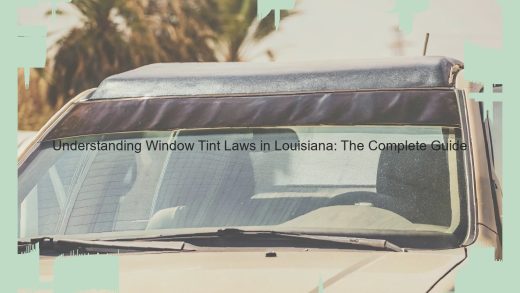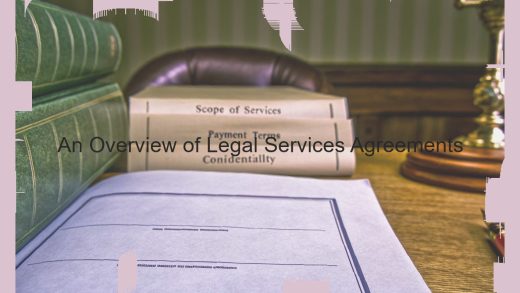The Ins and Outs of Las Vegas Tax Law
Las Vegas, widely known as the Entertainment Capital of the World, is the 28th most populated city in the United States and has a unique set of tax laws that affect individuals and businesses differently than most other cities in the nation. While Nevada, as a state, has no corporate income tax and no income tax for its residents, it does charge sales and property taxes. Sales tax in Nevada currently sits at 6.85% and varies slightly by county, with Clark County, where Las Vegas is located, charging 8.15%. Property tax in Clark County is capped at 0.65% of assessed value. This means that any real property (land, buildings) you own will not be taxed, but if you own any personal property (such as valuables, furniture, etc.) if that property meets the state’s minimum assessed value, it is subject to personal property taxation.
Additionally, gambling winnings used to be subject to both state and federal taxation. However, in 2009 , the IRS exempted casual gambling income from taxation, meaning that unless gambling is your primary source of income, your winnings are not taxed at the state or federal level. Because gambling is considered a recreational activity and a luxury, there is no limit to the number of slots or video gaming machines in Las Vegas, whereas some states cap the number of gaming machines in casinos.
With so many ways to earn income as a resident or a business owner in Las Vegas, it is important to understand what those income sources mean for your tax liabilities, so you can find the most advantageous and ethical way to plan your budget to minimize tax liability while making sure you’re fulfilling your civic duty to report earnings to federal and state tax agencies. The best way to do this is get the advice of a trusted tax attorney, especially if your income earnings are complex or a significant amount of your income comes from gambling.

The Importance of a Tax Attorney
Tax representation in Las Vegas can be offered by any number of attorneys, but a tax lawyer is the one designated for practicing tax law. A tax lawyer has a JD degree and usually carries a PHD in taxation. That is how he gains admission to the bar, as the two degrees are needed specifically in this area of law. What does this mean for you? A tax lawyer has spent years in education to make sure he knows the federal tax code down to the last detail. He knows the history, the policies, the precedents and how they all relate to your particular case.
The best tax lawyer in Las Vegas can assist you in solving the toughest problems. Most issues related to estate and gift tax can be solved creatively when presented in an effective spirit; this is where the tax lawyer comes in. He will know all of the loopholes legal jargon and codes that affect your case. That means less money spent paying too much on taxes or having too many taxes withheld up front. The tax lawyer may be able to get your refund back to you to help with your current expenses even sooner than the deadline date if his knowledge saves you some cash on taxes.
The tax resolution service your lawyer uses is step one in figuring out just how much tax you are liable for. So, are you in the Air Force? He can tell you about all the credits you qualify for. Do you have several businesses and are wondering how to file your taxes? He can tell you what you need to do differently to save money. He will take time for consultation with you to determine what your issues are and how best to resolve them.
Las Vegas Tax Attorney Services
Tax lawyers in Las Vegas offer a broad range of services to individuals and businesses in the region. Those who are most familiar with the concept of what a tax lawyer does envision them primarily working with clients to ensure that they are in compliance with all local, state, and federal tax requirements. While this is certainly a significant part of the profession, it is by no means the only part. Additional services offered by experienced tax attorneys in Las Vegas include: Although some may consider taxes to be an unpleasant reality, your Las Vegas tax attorney will ensure that you are informed and prepared for all aspects of taxes, from tax planning to dispute resolution to audits and even litigation. An experienced attorney can help you to navigate a variety of tax issues.
Selecting the Right Tax Attorney
When it comes to choosing the right tax lawyer in Las Vegas, there are several important factors to consider. Firstly, your lawyer’s experience is crucial. A lawyer with years of practice in tax law will be more likely to understand the intricacies of the tax code and how to navigate it effectively. Specialization is also a consideration. Some tax lawyers specialize in certain areas, such as international tax law or estate planning and taxes. Consider what type of tax issues you may face and whether your lawyer has specific experience in those areas .
Another factor is the lawyer’s reviews and reputation. Look for client testimonials and reviews to get a sense of the lawyer’s track record. Online reviews, case listings, and other professional profiles can also give you insight into their success rate. Lastly, consider whether the lawyer is prepared to offer a free consultation to discuss your specific situation. This will give you an opportunity to gauge your comfort level with the lawyer before making a decision.
Las Vegas Tax Attorney Fees
The cost of hiring a tax lawyer in Las Vegas will vary depending on several factors, including the complexity of your situation, the lawyer’s experience, and the scope of services provided. Hourly rates for experienced tax lawyers in the city typically range from $200-$600 per hour, but this can vary widely. Flat fees may be an option in some circumstances, particularly for routine matters. Contingency fees are more common in cases involving tax disputes where the lawyer receives a percentage of any amount recovered.
Before hiring a tax lawyer, ask for an estimate of the cost of your specific needs. Some lawyers also offer payment plans or sliding scale fees based on your income level.
Las Vegas Tax Attorneys: FAQs
Q: When should I hire a tax lawyer in Las Vegas?
A: You should hire a tax lawyer as soon as you know that you are being audited or have an issue pending with the IRS or state taxing authority. A tax lawyer is your best line of defense, and especially if you have a lot of income or assets in Las Vegas.
Q: What does a tax lawyer in Las Vegas charge for services?
A: Every tax lawyer is different, but usually they charge between $200 and $1,300 an hour. The more complicated the issue you are dealing with (criminal tax evasion, etc.), the higher their fees will be.
Q: How can a tax lawyer in Las Vegas help me with my tax case?
A: A tax lawyer is going to be your best ally when dealing with state and federal tax matters. These are experts in law who are trained in the tricky world of tax code and laws. Depending on your needs , they can help in various ways.
Q: Does every tax case require a tax lawyer in Las Vegas?
A: Not every case requires a tax lawyer. If you have a simple audit and you feel confident in handling it yourself, then that is an option. But if you don’t have much experience in dealing with the IRS and have any concerns about your potential liability, hiring a tax lawyer is a good idea so you’re not caught off guard.
Q: Can’t a tax accountant in Las Vegas help me with my case?
A: While a tax accountant can be helpful with your case, they are not lawyers and won’t be able to help you if it reaches a court situation. Their knowledge about tax law is limited and if you have complicated questions about your tax situation, you should probably get the advice of a tax attorney.



